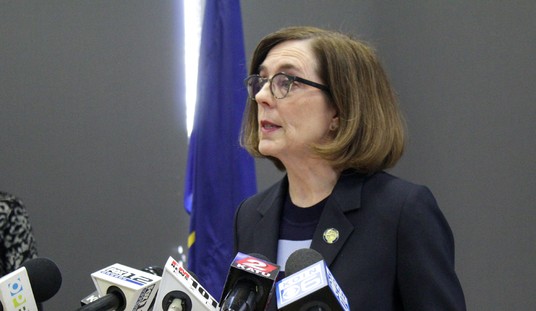It certainly sounds that way to me. Barack Obama got challenged by the press last night on his plan to limit deductions for charitable donations based on income levels. Obama defended the plan on the basis of fairness, saying that rich people derive a better benefit from their donation deductions, emphasis mine:
QUESTION: Mr. President, are you — thank you. Thank you, Mr. President. Are you reconsidering your plan to cut the interest rate deduction for mortgages and for charities? And do you regret having proposed that in the first place?
OBAMA: No, I think it’s — I think it’s the right thing to do, where we’ve got to make some difficult choices. Here’s what we did with respect to tax policy. What we said was that, over the last decade, the average worker, the average family have seen their wages and incomes flat. Even in times where supposedly we were in the middle of an economic boom, as a practical matter, their incomes didn’t go up. And so, well, we said, “Let’s give them a tax cut. Let’s give them some relief, some help, 95 percent of American families.”
Now, for the top 5 percent, they’re the ones who typically saw huge gains in their income. I — I fall in that category. And what we’ve said is, for those folks, let’s not renew the Bush tax cuts, so let’s go back to the rates that existed back in — during the Clinton era, when wealthy people were still wealthy and doing just fine, and let’s look at the — the level at which people can itemize their deductions.
And what we’ve said is: Let’s go back to the rate that existed under Ronald Reagan. People are still going to be able to make charitable contributions. It just means, if you give $100 and you’re in this tax bracket, at a certain point, instead of being able to write off 36 percent or 39 percent, you’re writing off 28 percent.
Now, if it’s really a charitable contribution, I’m assuming that that shouldn’t be the determining factor as to whether you’re giving that $100 to the homeless shelter down the street. And so this provision would affect about 1 percent of the American people. They would still get deductions. It’s just that they wouldn’t be able to write off 39 percent.
In that sense, what it would do is it would equalize — when I give $100, I’d get the same amount of deduction as when some — a bus driver who’s making $50,000 a year, or $40,000 a year, gives that same $100. Right now, he gets 28 percent — he gets to write off 28 percent. I get to write off 39 percent. I don’t think that’s fair.
So I think this was a good idea. I think it is a realistic way for us to raise some revenue from people who’ve benefited enormously over the last several years. It’s not going to cripple them. They’ll still be well-to-do. And, you know, ultimately, if we’re going to tackle the serious problems that we’ve got, then, in some cases, those who are more fortunate are going to have to pay a little bit more.
Well, why does that unfairness exist in the first place? It exists because of the progressive tax system, which charges different percentages of income tax based on income levels. People who make more pay a higher percentage of their income to the federal government (and to most state governments as well). If the deduction lowers their taxable income, it will create a higher-percentage benefit — but only because the government chooses to tax them at a higher rate than Obama’s ubiquitous bus driver.
Obama’s argument is nonsense for defending his new policy on charitable donations, in two ways. First, it will likely reduce the amount of donations generated by the people who make more money than most, a group that provides the lion’s share of donations to charities now. It’s not because, as Obama sniffed in his follow-up to this answer, because these people calculate their donations based on the tax deduction, but because they’ll simply have less money. That’s not exactly rocket science, although it apparently is for Obama.
Second and fundamentally, Obama uses the flat-tax argument of fairness to defend his extension of the progressive tax system. He wants to penalize high-income earners by gaming the system so that the natural effect of deductions in a progressive system gets artificially reversed. If Obama was really interested in fairness as expressed by percentages across all classes of earners, he would embrace the flat-tax system. That would eliminate all deductions, and everyone would pay the same percentage of income to the government, and it would also have the salutary effect of eliminating 90% of the IRS’ work.
Obama apparently didn’t realize the implications of his argument. If the reaction in the presser counts for anything, neither did the media.








Join the conversation as a VIP Member